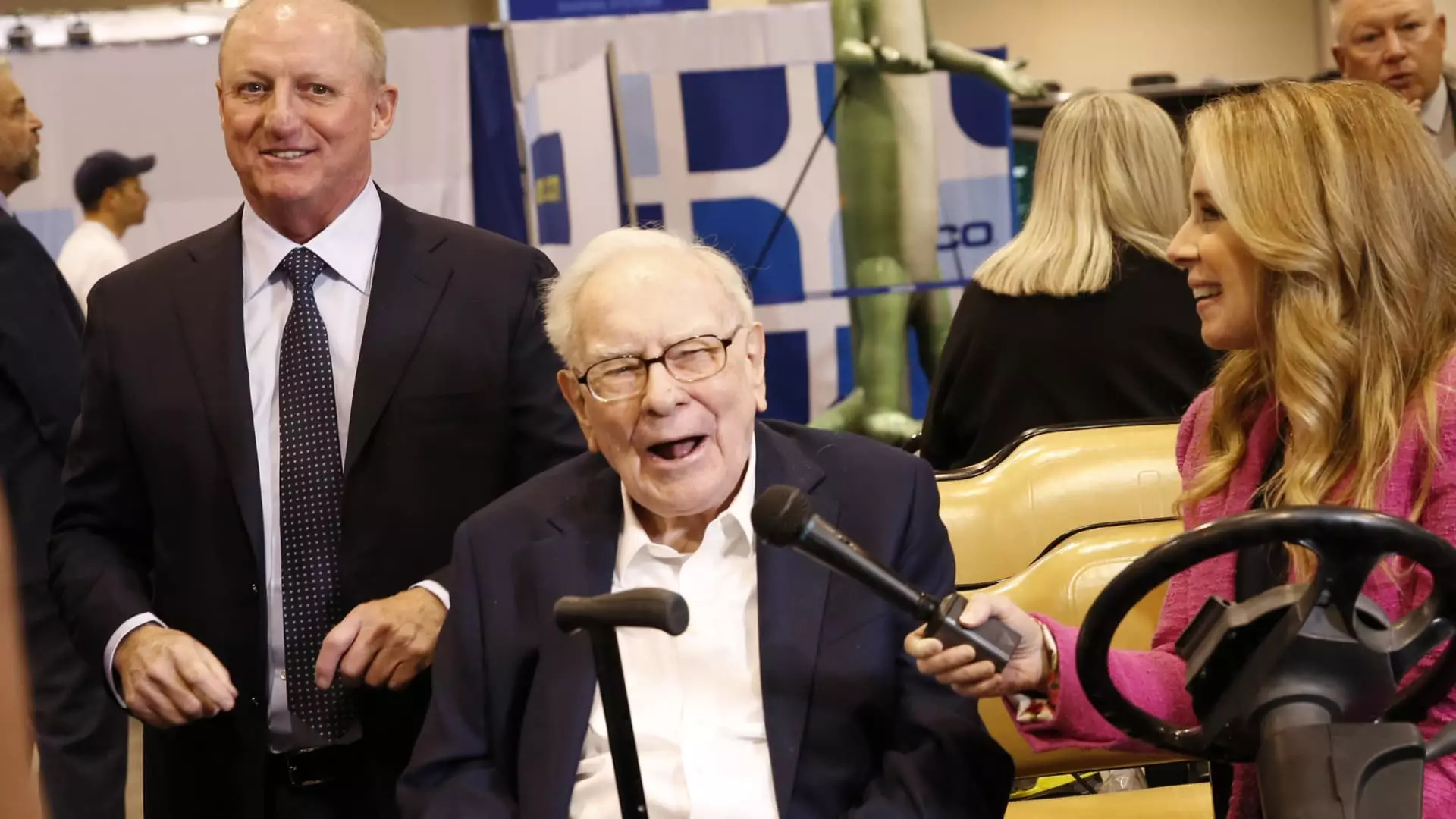Warren Buffett, the Oracle of Omaha, has long been regarded as a titan in the investment world. With an astonishing track record that has made Berkshire Hathaway a household name, Buffett’s recent announcement to step down as CEO by the end of the year sends ripples through the financial sector. After six decades of pioneering investment strategies, Buffett will hand over the reins to Greg Abel, his designated successor. This transition brings both an opportunity and a challenge: how will Berkshire continue to thrive in a landscape forever changed by Buffett’s methods?
It is crucial to understand the magnitude of Buffett’s accomplishments. Since taking control of Berkshire Hathaway—a struggling textile manufacturer—Buffett transformed the company into a sprawling conglomerate, delivering an astronomical return of 5,502,284% to shareholders from 1965 to 2024. Compared to the S&P 500’s return of 39,054% in the same period, it’s clear why Buffett is often hailed as one of the greatest investors of all time. This immense growth reflects not just luck but an unwavering investment philosophy grounded in value analysis and a keen understanding of market behaviors.
The Transition of Power
Buffett’s resignation signals a pivotal moment for Berkshire Hathaway. As he continues to serve as chairman, one can’t help but wonder how his absence will affect the company’s strategic direction. Abel, the incoming CEO, has been groomed for this position but stepping into the shoes of a giant comes with trials that could either reinforce or taint Buffett’s legacy. Abel must navigate the intricacies of a rapidly evolving market landscape, rife with technological disruptions and shifting consumer preferences that Buffett—who thrived mainly in a more traditional investment climate—did not often encounter.
The challenge is formidable. Buffett’s ability to sidestep major market downturns and capitalize on booming economic eras has been nothing short of phenomenal. For instance, years like 1998 and 1976 saw Berkshire outpacing the S&P 500 significantly, showcasing an exceptional knack for timing and market analysis. However, recent years have revealed vulnerabilities as the S&P 500 outperformed Berkshire, highlighting the delicate balance within market momentum and strategy. As Abel takes over, questions arise regarding whether he can adapt Buffett’s principles and vision while also introducing modern, innovative strategies to ensure continued growth.
Evaluating the Competitive Edge
Another pressing concern for investors is whether Berkshire’s impressive historical performance can be replicated. The market dynamics of the 21st century differ significantly from the era that launched Buffett into superstardom. With tech giants dominating the market and new investment models such as cryptocurrencies and decentralized finance gaining traction, the traditional value investing approach may require recalibration. While Berkshire has successfully diversified its holdings across various sectors including insurance, energy, and consumer goods, the challenge lies in identifying new growth avenues that align with emerging trends.
Among the most telling narratives is how resilient Berkshire has remained in the face of general market declines. For instance, during the tech-induced downturn of 2022, when the S&P 500 faltered, Berkshire managed to post a modest gain. Such performances underscore the company’s foundational strength; however, they also raise questions about agility in a marketplace that demands constant evolution. The real test for Abel lies not just in sustaining profitability, but in leveraging Buffett’s legacy for a future that may be far removed from past successes.
The Future of Value Investing
Buffett’s departure marks a seismic shift not just for Berkshire Hathaway but for the broader investment community. There is a palpable curiosity about whether Abel can maintain the value-oriented philosophy that has garnered Buffett fanfare. Jeremy Siegel, a finance professor at the University of Pennsylvania, emphasized the extraordinary nature of Buffett’s performance, particularly in the face of challenges that have plagued value investors over the last decade. His perspective reflects a broader sentiment that values must adapt or risk obsolescence.
As investors ponder the implications of Buffett’s exit, one truth stands out: the future of investing requires not just a continuation of the past but an adaptation to an ever-changing world. The market’s sentiment is fluctuating, and while some may see Buffett’s retirement as a cause for concern, others might find it an invitation for fresh strategies that could very well lead to a new era of innovation and profit—if managed wisely.

